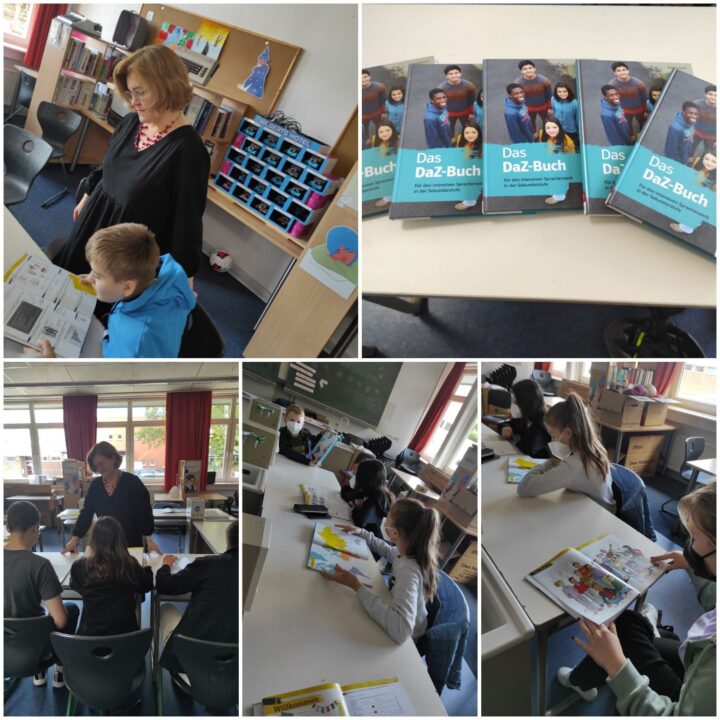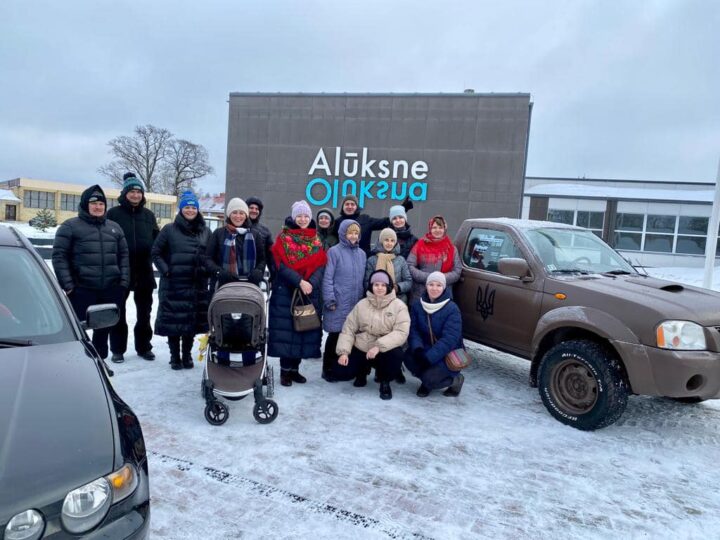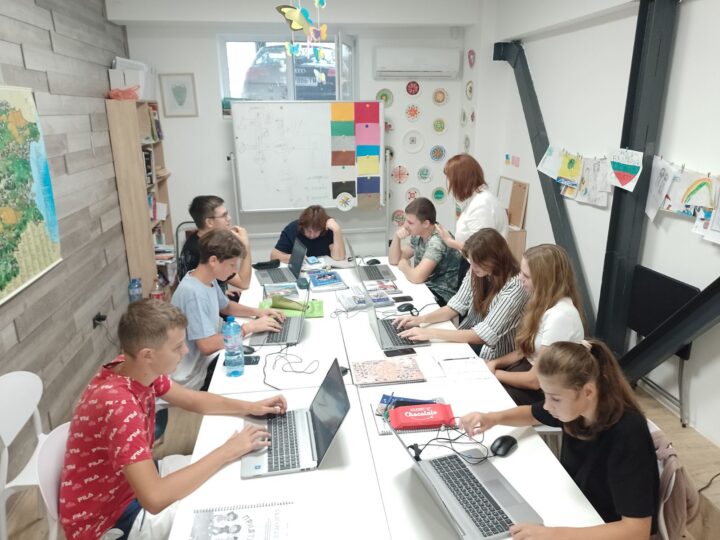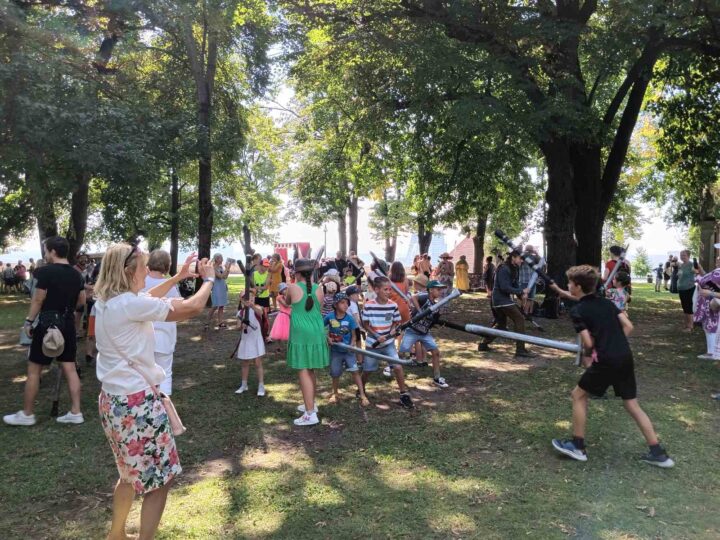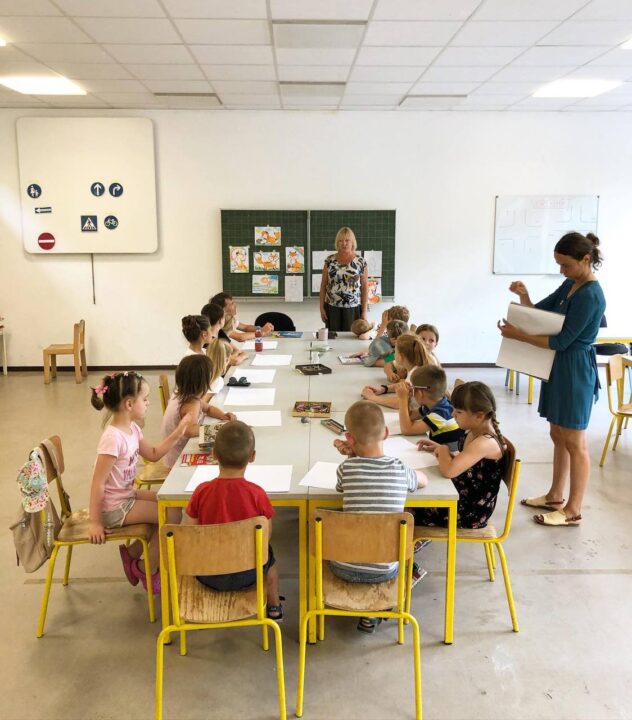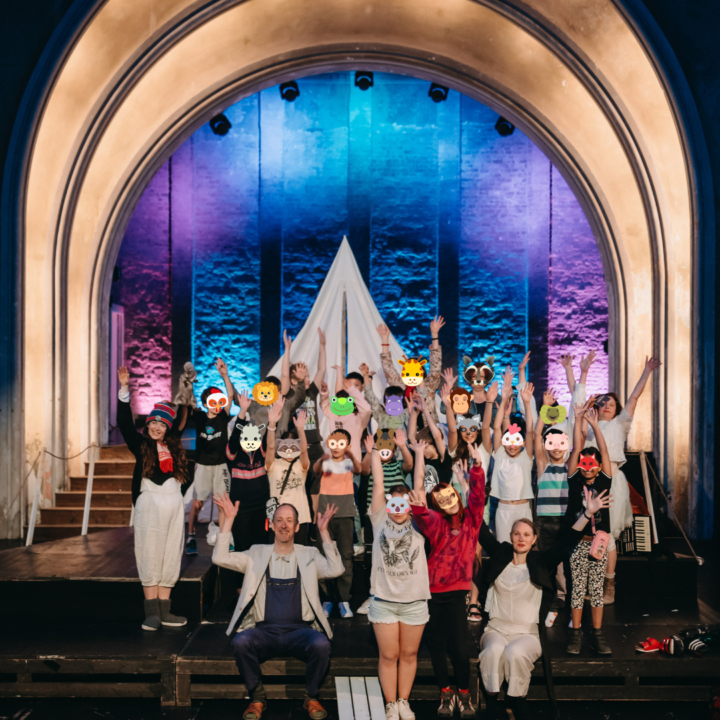

GCLS Ukrainian Round – Review of initiatives supporting Ukrainian Refugees
This year was a big challenge for Europe. The war in Ukraine and the continuous influx of refugees (5,000,000 refugees by 2022, according to UNHCR) made us launch a special round of competition to support local initiatives to help refugees. In this round, we supported 11 organizations from all over Europe. The organizations, in cooperation with local organizations, businesses, and residents, helped refugees who settled in their region. GCLS’ support was crucial, as many places had run out of funds from the State. Thanks to our grants, these organizations were able to sustain their efforts.
We are pleased to share a few examples from the Special UA round. These projects were completed in August. Another Ukrainian round is scheduled for the upcoming new year.
Żywiec Development Foundation (Poland)
Project: GCLS for Ukrainian refugees
An excellent model of comprehensive support for refugees. They implemented vocational courses for women, enabling them to change their career paths and increase their chances of success in the Polish labor market. In addition, they supported the language learning process through certified Polish lessons, opening the door to the possibility of applying for long-term residency in Poland. They assisted in obtaining necessary documents and were mediators in official matters. The food bank, which they run thanks to the support of local stores, allowed refugees to receive free food aid until they became independent. In addition, various integration activities were organized to foster a closer relationship between Ukrainians and the local community, e.g., knitting workshops. The workshop was not only a place for integration but also allowed women to gain skills that they could use to earn money. Thanks to these efforts, the organization became a trustworthy place for refugees. It responded flexibly to the evolving needs of refugees, which, combined with ongoing observation of the situation, resulted in effective support. The organization’s initiatives demonstrate how a comprehensive approach contributes to faster adaptation to new living conditions and supports refugees in becoming independent.
Healthy City Community Foundation (Slovakia)
Project: Support for inclusion of Ukrainians living in Brianská Bystrica region.
The organization provided dignified material assistance to Ukrainian refugees in the region. Weekly support, primarily focused on families with young children, seniors, and newcomers in their initial three months, included essential items like food and hygiene supplies. Alongside this, the organization actively promoted community integration through various activities.
The organization facilitated informal weekly gatherings, which served as a platform for questions, advice, and social interaction. Furthermore, it sponsored summer outings for children, encompassing visits to swimming pools, museums, and regional attractions. They organized larger community events, including Vishivanka Day, Bridges between Us, and Ukrainian Independence Day, to foster cultural exchange through traditional attire, music, and cuisine.

In 2023, the organization conducted two grant calls— one for general support and another specifically for summer inclusion activities. Out of the 12 funded projects, four were recipients of the GCLS grant. These projects included a diverse range of initiatives contributing to community well-being.
Inspired by the project Humans of New York, they initiated the project People of Banska Bystrica to showcase community diversity through photo stories. The project was implemented in collaboration with local photographers. The aim of these photos was to start discussions on issues faced by minorities, refugees, and the homeless. As part of the project, they launched a blog exploring community life, diversity, and inclusion.
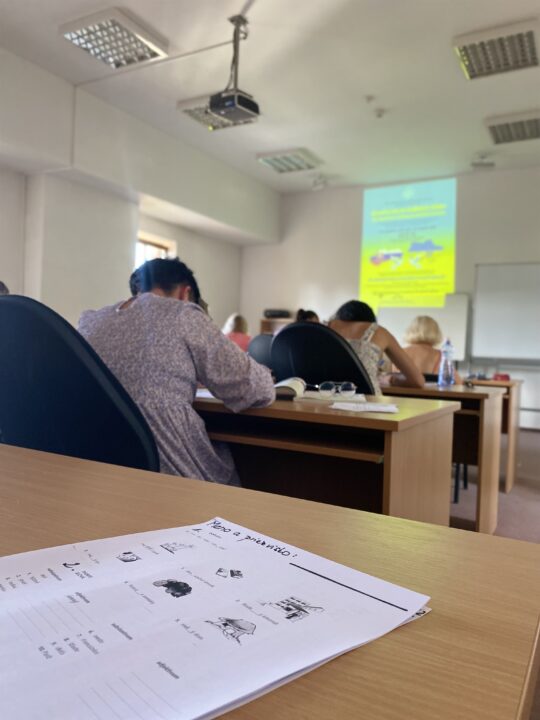
Recognizing the importance of effective communication, the organization, in partnership with NGOs, organized a one-day training session on communication skills and argumentation. Additionally, they participated in the seminar ‘Peaceful Victories,’ which focused on navigating polarized environments and promoting peaceful leadership. These initiatives collectively enhance their organization’s ability to create a positive impact and build stronger, more inclusive communities.
Community Foundation Göttingen
Arrive well – live well – return stronger
The organization supported local institutions that provided help for refugees, focusing on educational, pedagogical, and psychological care. Their activities included organizing German language courses, assisting teachers in integrating students from Ukraine, and addressing current problems. They also supported the organization of meetings covering topics like living in Göttingen, education, finding work, accommodation, taxes, and more.
Additionally, they provided support to children in local schools and kindergartens, assisting with the purchase of items like winter shoes, jackets, and school utensils. The organization extended support to students from Africa or Asia who had fled from Ukraine, financing German language courses for them to continue their studies in Göttingen. A facility near Göttingen, in Hannoversch-Münden, dedicated to Ukrainian refugee mothers and children received funding for games to help them adapt to the new environment. The organization also funded a translator to facilitate communication between parents and teachers on sensitive topics, ensuring clear discussions on educational, behavioral, and psychological issues, especially when parents had limited proficiency in German.
During the Easter holidays, in collaboration with the ‘Deutsches Theater Göttingen,’ they organized a one-week theater workshop for Ukrainian girls.
Aluksnes and Apes Community Foundation (Latvia)
Project: Keep supporting the people of Ukraine!
Throughout the project implementation, the Foundation successfully executed planned activities and key tasks. It ensured the continuous operation of the coordination and information point for seven months, with daily functioning managed by project employees and volunteers in collaboration with the municipalities of Alūksne and Smiltene counties. During the project, the fund provided various types of support to Ukrainian war refugees more than 760 times, an average of 4 – 5 people per day.
A comprehensive database was established for each Ukrainian refugee, enabling data analysis to understand the origins of residents from different regions of Ukraine. This facilitated the prediction of future asylum seeker flows and potential risks. The Foundation identified and addressed the needs of refugees, providing assistance and meticulously recording cases of Ukrainian refugees.
Visits to refugee accommodation places allowed for the identification of needs and the provision of necessary assistance. The engagement of Ukrainian and Latvian volunteers played a crucial role in resolving various issues.
Promoting the integration of Ukrainian refugees into the community and society, the Foundation organized 39 events encompassing cultural, recreational, sports, and tourism activities. Ukrainians actively participated as volunteers in 15 events, while representatives of the local community volunteered in all events. Regular participation in project working group meetings and collaboration with foundation partners, including donors, municipality leaders, institutions, employees, entrepreneurs, and NGO organizations, further strengthened the project’s impact and effectiveness.
Varna Community Foundation (Bulgaria)
Project: Supporting the Educational and Labor Market Integration of Ukrainian Refugees in Varna, Bulgaria
The project aimed to aid the integration of Ukrainian refugees, both adults and children, residing in Varna with plans to stay for several years. Two primary objectives guided their efforts. Firstly, they sought to facilitate the educational integration of Ukrainian middle school students by establishing an after-school study hub dedicated to assisting them with Bulgarian language learning and homework. They collaborated with the ‘Energy’ Association, which specializes in after-school activities for children. A group of 20 Ukrainian students, ranging from grades 5 to 7, received daily support for homework preparation and the improvement of their Bulgarian language skills. Consequently, all of them successfully graduated in the 2022/23 school year. The group met at the after-school study hub every school day during the second semester, from February 1st to June 15th.
Secondly, their project aimed to support the labor market integration of Ukrainian adults in Varna by establishing a labor-market orientation hub offering computer literacy training and career guidance. They organized computer literacy courses for Ukrainian adults at the BNT Varna premises, accompanied by career orientation services. Additionally, they created and published an online handbook in the Ukrainian language to guide newcomers in navigating the Bulgarian job market. The handbook was distributed with the assistance of a refugee center dedicated to serving Ukrainian refugees in Varna. In total, 20 Ukrainian adults benefited from computer literacy training, career orientation, and preparation for job interviews. The success of job searches conducted by Ukrainian adults in Varna was greatly aided by the support of local residents, including host families and their friends. Informal communication and community support played a crucial role in enhancing the effectiveness of their project.
Beyond the core educational and vocational objectives, they enriched the experience of their students. They organized historical excursions to Bulgaria’s old capitals, including Pliska, Veliko Tarnovo, Madara, and Veliki Preslav. Students engaged in interactive lessons focusing on Bulgarian history and culture. Furthermore, they received extracurricular training in ‘Computer Modeling.’ These supplementary activities were made possible through the collaboration of community parents, who were eager to foster integration between Ukrainian children and Bulgarian culture. Bulgarian students also joined the trips, enhancing informal communication and facilitating integration among the students.
The Bratislava Community Foundation (Slovakia)
Project: At home I am so, where I have a bike (not only) – targeted assistance to the community of children and their brave mothers.
Their focus has centered on a group of refugees (especially mothers and children) who, despite Slovakia’s initial support, faced challenges in daily life.
Key project activities included daycare space for children, Slovak language instruction in preparation for school, addressing essential everyday needs, and most importantly, creating enriching experiences to foster a sense of belonging. Excursions and events, such as visits to the zoo, Danube River cruises to Devín Castle, bio-farm tours, participation in Dragon Days, swimming pool outings, and theater visits, contributed to a beautiful summer for the children and their mothers. Their main goal was to provide not only practical support but also memorable moments that allowed them to briefly escape the challenges in their homeland. Through excursions, they were able to get to know the city and its surroundings and settle into the community.
Community Foundation Berlin
Project title: Engagement für Geflüchtete (Commitment for refugees)
In collaboration with local organizations, they organized German language classes and provided teaching materials to volunteers, partner schools, and refugee accommodations (totaling 28 boxes of specialized German teaching materials). The language lessons were extremely important to help refugees adjust to life in the new country. They also arranged a successful theater event for refugee children, inviting those from partner primary schools. The performance, “An der Arche um Acht,” was presented by the volunteer theater group syn:format. Ukrainian women were involved in the project, making them feel needed and part of the community. The event received positive feedback from both students and teachers, demonstrating the value of such cultural initiatives in improving overall education and integration.

